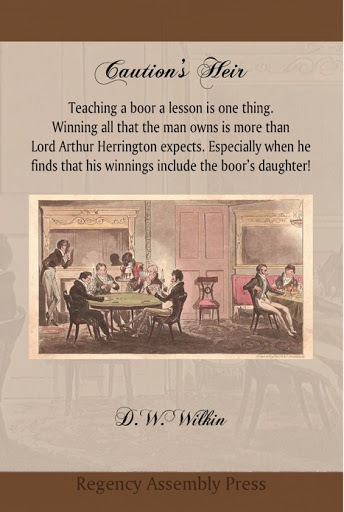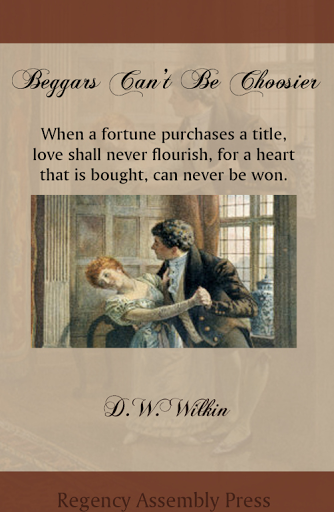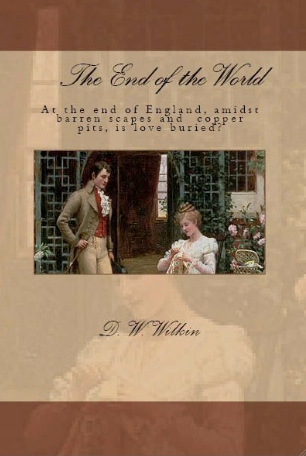D.W. Wilkin's Blog, page 174
October 24, 2014
Regency Personalities Series-Alexander Hamilton 10th Duke of Hamilton
Regency Personalities Series
In my attempts to provide us with the details of the Regency, today I continue with one of the many period notables.
Alexander Hamilton 10th Duke of Hamilton
3 October 1767 – 18 August 1852
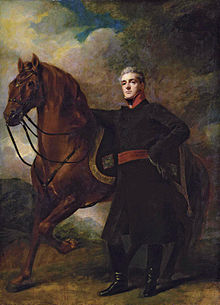
Alexander Hamilton
Alexander Hamilton 10th Duke of Hamilton was born at St. James’s Square, London, a son of Archibald Hamilton, 9th Duke of Hamilton, he was educated at Harrow School and at Christ Church, Oxford.
Hamilton was a Whig, and his political career began in 1802, when he became MP for Lancaster. He remained in the House of Commons until 1806, when he was appointed to the Privy Council, and Ambassador to the court of St. Petersburg until 1807; additionally, he was Lord Lieutenant of Lanarkshire from 1802 to 1852. He received the numerous titles at his father’s death in 1819. He was Lord High Steward at King William IV’s coronation in 1831 and Queen Victoria’s coronation in 1838, and remains the last person to have undertaken this duty twice. He became a Knight of the Garter in 1836. He held the office of Grand Master of the Freemasons between 1820 and 1822. He held the office of President of the Highland and Agricultural Society of Scotland between 1827 and 1831. He held the office of Trustee of the British Museum between 1834 and 1852.
He married Susan Euphemia Beckford, daughter of William Thomas Beckford and Lady Margaret Gordon-daughter of Charles Gordon, 4th Earl of Aboyne, on 26 April 1810 in London, England.
Beckford was the son of a Lord Mayor of London, William Beckford and his wife Maria Hamilton, who like the 10th Duke was a descendant of James Hamilton, Duke of Châtellerault.
Hamilton was a well-known dandy of his day. An obituary notice states that “timidity and variableness of temperament prevented his rendering much service to, or being much relied on by his party … With a great predisposition to over-estimate the importance of ancient birth … he well deserved to be considered the proudest man in England.” He also supported Napoleon and commissioned the painting The Emperor Napoleon in His Study at the Tuileries by Jacques-Louis David.
Lord Lamington, in The Days of the Dandies, wrote of him that ‘never was such a magnifico as the 10th Duke, the Ambassador to the Empress Catherine; when I knew him he was very old, but held himself straight as any grenadier. He was always dressed in a military laced undress coat, tights and Hessian boots, &c’. Lady Stafford in letters to her son mentioned ‘his great Coat, long Queue, and Fingers cover’d with gold Rings’, and his foreign appearance. According to another obituary, this time in Gentleman’s Magazine he had ‘an intense family pride’.
Hamilton had a strong interest in Ancient Egyptian mummies, and was so impressed with the work of mummy expert Thomas Pettigrew that he arranged for Pettigrew to mummify him after his death. He died on 18 August 1852 at age 84 at 12 Portman Square, London, England and was buried on 4 September 1852 at Hamilton Palace, Hamilton, Scotland. In accordance with his wishes, Hamilton’s body was mummified after his death and placed in a sarcophagus of the Ptolemaic period that he had originally acquired in Paris in 1836 ostensibly for the British Museum. At the same time he had acquired the sarcophagus of Pabasa, an important noblemen which is now in the Kelvingrove Museum. In 1842 Hamilton had begun construction of the Hamilton Mausoleum as repository for the overcrowded family vault at the Palace. He was interred there with other Dukes of Hamilton, from the 1858 completion of the Mausoleum until 1921 when subsidence and the subsequent demolition of the Palace forced removal of the bodies to the Bent cemetery in Hamilton, where he still lies buried in his sarcophagus.
His collection of paintings, objects, books and manuscripts was sold for £397,562 in July 1882. The manuscripts were purchased by the German government for £80,000. Some were repurchased by the British government and are now in the British Museum.
By his wife, Susan Beckford, Hamilton had one son and one daughter:
William Hamilton, 11th Duke of Hamilton, who married Princess Marie Amelie of Baden
Lady Susan Hamilton, who married 1st, Henry Pelham-Clinton, 5th Duke of Newcastle; 2nd, Jean Alexis Op de Beeck.


Caution’s Heir from Regency Assembly Press-Now available everywhere!
Caution’s Heir is now available at all our internet retailers and also in physical form as well
The Trade Paperback version is now available for purchase here @ $15.99 (but as of this writing, it looks like Amazon has still discounted it 10%)
Caution’s Heir is also available digitally for $4.99 @ the iBookstore, Amazon, Barnes and Noble, Kobo and Smashwords.
The image for the cover is a Cruikshank, A Game of Whist; Tom & Jerry among the ‘Swell Broad Coves.’ Tom and Jerry was a very popular series of stories at the time.
Teaching a boor a lesson is one thing.
Winning all that the man owns is more than Lord Arthur Herrington expects. Especially when he finds that his winnings include the boor’s daughter!
The Duke of Northampshire spent fortunes in his youth. The reality of which his son, Arthur the Earl of Daventry, learns all too well when sent off to school with nothing in his pocket. Learning to fill that pocket leads him on a road to frugality and his becoming a sober man of Town. A sober but very much respected member of the Ton.
Lady Louisa Booth did not have much hope for her father, known in the country for his profligate ways. Yet when the man inherited her gallant uncle’s title and wealth, she hoped he would reform. Alas, that was not to be the case.
When she learned everything was lost, including her beloved home, she made it her purpose to ensure that Lord Arthur was not indifferent to her plight. An unmarried young woman cast adrift in society without a protector. A role that Arthur never thought to be cast as. A role he had little idea if he could rise to such occasion. Yet would Louisa find Arthur to be that one true benefactor? Would Arthur make this obligation something more? Would a game of chance lead to love?
Today, the iBookstore is added, HERE
Get for your Kindle, Here
In Trade Paperback, Here
Digitally from Smashwords, Here
For your Sony Kobo, Here
Or for your Nook, Here
From our tale:
Chapter One
St. Oswald’s church was bleak, yet beautiful all in one breath. 13th century arches that soared a tad more than twenty feet above the nave provided a sense of grandeur, permanence and gravitas. These prevailed within, while the turret-topped tower without, once visible for miles around now vied with mature trees to gain the eye of passers-by.
On sunny days stain-glass windows, paid for by a Plantagenet Baron who lived four hundred years before and now only remembered because of this gift, cast charming rainbow beams across the inner sanctum. And on grey overcast days ghostly shadows danced along the aisle.
As per the custom of parish churches the first three pews were set-aside for the gentry. On this day the second pew, behind the seat reserved for the Marquess of Hroek, who hadn’t attended since the passing of his son and heir, was Louisa Booth his niece and her companion Mrs Bottomworth.
Mrs Bottomworth was a stocky matron on the good side of fifty. Barely on the good side of fifty. But one would not say that was an unfortunate thing for she wore her years well and kept her charge free of trouble. Mrs Bottomworth’s charge was an only child, who would still have been in the schoolroom excepting the fact of the death of her mother some years earlier. This had aged the girl quickly, and made her hostess to her father’s household. The Honourable Hector Booth, third son of the previous Marquess, maintained a modest house on his income of 300 pounds. That was quite a nice sum for just the man and one daughter, with but five servants. They lived in a small, two floor house with four rooms. It should be noted that this of course left two bedchambers that were not inhabited by family members. As the Honourable Mr Booth saved his excess pounds for certain small vices that confined themselves with drink and the occasional wager on a horse, these two rooms were seldom opened.
Mrs Bottomworth had thought to make use of one of the empty rooms when she took up her position, but the Honourable Hector Booth advised and instructed her to share his daughter’s room. For the last four years this is what she had done. When two such as these shared a room, it was natural that they would either become best of friends, or resent each other entirely. Happily the former occurred as Louisa was in need of a confidant to fill the void left in her mother’s absence, and Mrs Bottomworth had a similar void as her two daughters had grown and gone on to make their own lives.
The Honourable Mr Booth took little effort in concerning himself with such matters as he was ever about his brother’s house, or ensconced in a comfortable seat at either the local tavern or the Inn. If those locations had felt he was too warm for them, he would make a circuit of what friends and acquaintances he had in the county. The Honourable Mr Booth would spend an hour or two with a neighbour discussing dogs or hunters, neither of which he could afford to keep, though he did borrow a fine mount of his brother to ride to the hunt. The Marquess took little notice, having reduced his view of the world by degrees when first his beloved younger brother who was of an age between the surviving Honourable Mr Booth had perished shortly after the Marquess’ marriage. Their brother had fallen in the tropics of a fever. Then the Marquess had lost his second child, a little girl in her infancy, his wife but a few years after, and most recently his son and heir to the wars with Napoleon.
This caused the Honourable Mr Booth to be heir to Hroek, a situation that had occurred after he had lost his own wife. With that tragedy, Mr Booth had found more time to make friends with all sorts of new bottles, though not to a degree that it was considered remarkable beyond a polite word. Mr Booth was not a drunkard. He was confronting his grief with a sociability that was acceptable in the county.
Louisa, however, was cast further adrift. No father to turn to. No uncle who had been the patriarch of the family her entire life. And certainly now no feminine examples to follow but her companion and governess, Mrs Bottomworth. That Mrs Bottomworth was an excellent choice for the task was more due to acts of the Marquess, still able to think clearly at the time she was employed, than to the Honourable Mr Booth. Mr Booth was amenable to any suggestion of his elder brother for that man controlled his purse, and as Mr Booth was consumed with grief, while the Marquess had adapted to various causes of grief prior to the final straw of his heir’s death, the Marquess of Hroek clearly saw a solution to what was a problem.
Now in her pew, where once as a young girl she had been surrounded by her cousins, parents, uncles and aunt, she sat alone except for her best of friends. Louisa was full of life in her pew, her cheeks a shade of pink that contrasted with auburn hair, which glistened as sunlight that flowed though the coloured panes of glass touched it from beneath her bonnet. Blue eyes shown over a small straight nose, her teeth were straight, though two incisors were ever so slightly bigger than one would attribute to a gallery beauty painted by Sir Thomas Lawrence.
She was four inches taller than five feet, so rather tall for a young woman, but her genes bred true, and many a girl of the aristocracy was slightly taller than those women who were of humbler origins. Her back was straight and for an observant man, of which there were some few in the county, her figure might be discussed. The wrath though of her uncle the Marquess would not wish to be bourne should it be found out that her form had become a topic amongst the young men. Noteworthy though was that she had a figure that men thought inspiring enough to tempt that wrath, and think on it. A full bosom was high on her chest, below her heart shaped face. She was lean of form, though her hips flared just enough that one could see definition in her torso. Certainly a beauty Sir Thomas’ brushes would wish the honour to meet.
The vicar Mr Spotslet had at one time in his early days in the community, discussed the Sunday sermons with the Marquess. Mr Spotslet had enjoyed long discussions of theology, philosophy, natural history and the holy writ that were then thoughtfully couched in terms to be made accessible by the parish. The lassitude that had overtaken the Marquess had caused those interviews to become shortened and infrequent and as such the sermons suffered, as many were wont to note. There had been dialogues that Mr Spotslet had engaged in with the attendees of his masses. Now he seemed to have lost his way and delivered soliloquies.
This day Mr Spotslet indulged in a speech that talked to the vices of gambling. The local sports, of which the Honourable Mr Booth was an intimate, had raced their best through the village green the previous Wednesday for but a prize of one quid, and this small bet had caused pandemonium when Mrs McCaster had fallen in the street with her washing spread everywhere and trampled by the horses. Not much further along the path, Mr Smith the grocer’s delivery for the vicar himself was dropped by the boy and turned into detritus as that too was stampeded over. A natural choice for a sermon, yet only two of the culprits were in attendance this day. The rest had managed to find reasons to avoid the Mass.
Louisa squirmed a little in her seat the moment she realised that her father had been one of the men that the sermon was speaking of. Was she not the centre of everyone’s gaze at such a time? Her father having refused to attend for some years, and her uncle unable due to his illness. She was the representative of the much reduced family. Not only was it expected that the parish would look to her as the Booth of Hroek, but with her father’s actions called to the attentions of all, it was natural that they look at her again. This time in a light that did not reflect well on her father and she knew that she had no control over that at all.
Mrs Bottomworth, who might have been lightly resting her eyes, Louisa would credit her in such a generous way, came to tensing at the mention of the incident. Louisa did not want to bring her friend to full wakefulness, but Mrs Bottomworth realised what was occurring and the direction that the sermon was taking. Louisa’s companion took her hand and patted it reassuringly.
“Perhaps a social call on Lady Walker?” Mrs Bottomworth suggested as they walked back to the house after services. The house which sat just within the estate boundaries was four hundred feet off the main bridal way that led to Hroek Castle. A small road had been cleared from the gatehouse to the house that Mr Booth now maintained, and this the two women travelled.
Louisa generally appreciated visits such as this as she had gotten older, and certainly several of the adults in the neighbourhood showed a kindly interest in her education and the development of her social manners. “I think I shall go to the castle and read to my uncle.” A task that she had done each day of the last fortnight but one.
“We have not talked, but you and the Marquess had an interview with the doctors.” Mrs Bottomworth had tried to comfort her charge after that, but Louisa had waved her hand and gone to sit quietly under a yew tree that had a grand vista of the park leading to Hroek Castle.
“Uncle will be most lucky if he should be with us come Michaelmas.”
“That will be a sad day when we lose such a friend.” These were words of comfort. Mrs Bottomworth had been well encouraged in her charge by the Marquess but one could not say that they interacted greatly with one another. The Marquess ensured that his brother heeded the suggestions and advisements of Mrs Bottomworth as the Honourable Mr Booth left to his own devices would have kept his daughter in the nursery and would have forgotten to send a governess to provide her with instruction.
“Indeed, my uncle may not have been one of the great men of England, but he is well regarded in the county.” Often with that statement followed the next, “Warmly remembered is it when the Prince Regent came and stayed for a fortnight of sport and entertainment.” This had been many years before, and certainly before any of the tragedies beset the line of the Booths.
“Yes, I have heard it said with great earnestness. But come let us change your clothes and then we shall go up to the great house. I shall have Mallow fetch the gig so we may proceed all the more expeditiously.”
“That would be good, but we will have to use the dogcart. Father was to take the gig to see Sir Mark today, or so he said at breakfast.” Where Louisa knew he would drink the Baronet’s sherry for a couple hours before thinking to return, unless he was asked to stay for dinner.


October 23, 2014
Regency Personalities Series-Alan Gardner 1st Baron Gardner
Regency Personalities Series
In my attempts to provide us with the details of the Regency, today I continue with one of the many period notables.
Alan Gardner 1st Baron Gardner
12 February 1742 – 1 January 1809
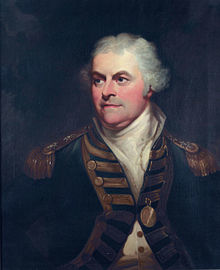
Alan Gardner
Alan Gardner 1st Baron Gardner joined the Royal Navy in 1755. Promoted to Captain in 1766, his first command was the fireship HMS Raven. He commanded a number of frigates before being promoted to a ship of the line. In 1782 he commanded a ship at the Battle of the Saintes and in 1786, as Commodore of the American Squadron (consisting of HMS Europa and HMS Experiment), he suppressed smuggling in the Gulf of Mexico and ordered detailed hydrographic surveys of Caribbean locations of interest to the Navy. During this time, he commanded and probably mentored future famous officers such as George Vancouver, Peter Puget and Joseph Whidbey.
He was a Member of the Board of Admiralty from 1790 to 1795 and was then promoted to full Admiral in 1795. During the Mutiny at Spithead in 1797, Gardner negotiated directly with the mutineers, until he lost his temper, seized a mutineer by the throat and threatened to hang the lot. This nearly led to his own demise at the hands of the mutineers, but cooler heads prevailed.
In 1800 he became Commander-in-Chief of the Irish Station. That year he was also created Baron Gardner, of Uttoxeter, in the Peerage of Ireland and in 1806 the title of Baron Gardner in the Peerage of the United Kingdom was created for him. He was Member of Parliament for Plymouth and, later, Westminster. He was briefly Commander-in-Chief, Portsmouth from March to June 1803. In 1807 he was made Commander-in-Chief of the Channel Fleet and he died in office on 1 January 1809.
Gardner was born in Uttoxeter. He married Susannah Hyde Gale on 20 May 1769. They had two sons. The older son, Alan Hyde Gardner, 2nd Baron Gardner, and their nephew, Robert Barrie, became Admirals in the Royal Navy. Gale was a Jamaican heiress and the daughter of Francis Gale, a plantation owner, and Susanna Hall.
Through his brother, Major Valentine Gardner, he was the uncle of Colonel William Linnæus Gardner, an Indian officer.
Capt. George Vancouver named several locations after Gardner: Mount Gardner in Australia, the Gardner Channel in Canada, and Port Gardner Bay in Puget Sound. Also in Puget Sound, Port Susan is named for his wife, Susannah.
An East Indiaman was named after Admiral Gardner; it was wrecked on the Goodwin Sands, in 1809. It was carrying a large number of copper 10 and 20 cash coins minted by the East India Company for circulation in the Madras Presidency. The coins were preserved in tightly sealed barrels and large numbers were retrieved around 1986. They are frequently packaged and sold as inexpensive “shipwreck coins.”


RAP’s has Beggars Can’t Be Choosier
One of the our most recent Regency Romances.
Beggars has won the prestigious Romance Reviews Magazine Award for Outstanding Historical Romance:
It is available for sale and I hope that you will take the opportunity to order your copy.
For yourself or as a gift. It is now available in a variety of formats. For $3.99 you can get this Regency Romance for your eReader. A little more as an actual physical book.
When a fortune purchases a title, love shall never flourish, for a heart that is bought, can never be won.
The Earl of Aftlake has struggled since coming into his inheritance. Terrible decisions by his father has left him with an income of only 100 pounds a year. For a Peer, living on such a sum is near impossible. Into his life comes the charming and beautiful Katherine Chandler. She has a fortune her father made in the India trade.
Together, a title and a fortune can be a thing that can achieve great things for all of England. Together the two can start a family and restore the Aftlake fortunes. Together they form an alliance.
But a partnership of this nature is not one of love. And terms of the partnership will allow both to one day seek a love that they both deserve for all that they do. But will Brian Forbes Pangentier find the loves he desires or the love he deserves?
And Katherine, now Countess Aftlake, will she learn to appreciate the difference between happiness and wealth? Can love and the admiration of the TON combine or are the two mutually exclusive?
Purchase here:Amazon Kindle, Barnes and Noble Nook, Kobo, Smashwords, iBooks, & Trade Paperback
Feedback
If you have any commentary, thoughts, ideas about the book (especially if you buy it, read it and like it ;-) then we would love to hear from you.


October 22, 2014
Regency Personalities Series-Maria Theresa Kemble
Regency Personalities Series
In my attempts to provide us with the details of the Regency, today I continue with one of the many period notables.
Maria Theresa Kemble
1774–1838
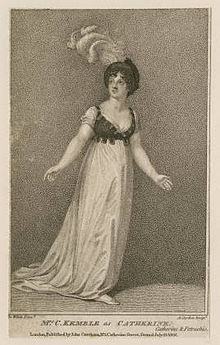
Maria Theresa Kemble
The daughter of George De Camp, real name possibly De Fleury, she was born in Vienna 17 January 1774 into a family of musicians and dancers. Brought to England, she appeared when six years old at the Opera House, as Cupid in a ballet by Jean-Georges Noverre. After playing at the age of eight in a theatre directed by M. Le Texier Zélie in a translation of La Colombe by Madame de Genlis, she was engaged for the Royal Circus. George Colman took her for the Haymarket Theatre. Her first performance at the Haymarket was in The Nosegay on 14 June 1786 with James Harvey D’Egville in the presence of the royal family. On 21 June she danced in The Polonaise, and on 7 July she appeared in a ballet entitled Jamie’s Return with James Harvey and his brother George D’Egville. She was then secured by Thomas King for the Drury Lane Theatre, where on 24 October 1786, she played Julie, a small part in John Burgoyne’s Richard Cœur de Lion. Her father had left her in England for Germany, where he died while she was still young; she picked up English, and played juvenile and small parts.
She first caught the public taste 15 August 1792 at the Haymarket, when, in a travestied Beggar’s Opera she performed Macheath to the Polly of John Bannister and the Lucy of John Henry Johnstone. Biddy in Miss in her Teens (David Garrick), Adelaide in The Count of Narbonne adapted from the Castle of Otranto, Gillian in the Quaker, and Lucy in The Recruiting Officer were then assigned her; and she played some original parts, including Lindamira in Richard Cumberland’s Box Lobby Challenge. In singing parts she was allowed at times to replace Nancy Storace and Anna Maria Crouch. She was the original Judith in The Iron Chest (George Colman the Younger), and Florimel in Kemble’s Celadon and Florimel (from The Maiden Queen). Miranda in the Busybody, Page (Cherubin) in Follies of a Day (Figaro), Le Mariage de Figaro, and Kitty in High Life Below Stairs (James Townley) followed. At the Haymarket, 15 July 1797, she was the original Caroline Dormer in The Heir-at-Law (George Colman the Younger), and in the same year she played Portia and Desdemona, followed at Drury Lane by Katherine in Katherine and Petruchio, and Hippolito in Kemble’s alteration of The Tempest.
For her benefit, 3 May 1799, she gave at Drury Lane her own unprinted play of First Faults. In 1799 William Earle printed a piece called Natural Faults, and accused Miss De Camp in the preface of having stolen his plot and characters. In a letter to the Morning Post of 10 June, she denied the charge, and asserted that her play was copied by Earle from recitation. John Genest considered that Earle’s statement ‘has the appearance of truth’. Lady Teazle, Miss Hoyden, Lady Plyant in The Double Dealer (William Congreve), Hypolita in She would and she would not, Little Pickle, and Dollalolla in Tom Thumb were some of the other parts she played before her marriage to Charles Kemble, which took place 2 July 1806.
Accompanying the Kembles to Covent Garden, she made her first appearance there, 1 October 1806, as Maria in the Citizen, and remained there for the rest of her acting career. Her comedy, The Day after the Wedding, or a Wife’s First Lesson, 1808, was played at Covent Garden for the benefit of her husband, who enacted Colonel Freelove, 18 May 1808; she was Lady Elizabeth Freelove. Match-making, or ‘Tis a Wise Child that knows its own Father, played for her own benefit on the 24th, is also assigned to her. It was not acted a second time, nor printed.
She also assisted her husband in the preparation of Deaf and Dumb. Among the parts now assigned her were Ophelia, Mrs. Sullen, Violante, Beatrice in Much Ado about Nothing, Mrs. Ford, and Juliana in the Honeymoon, and the like. In 1813–14 and 1814–15 she was not engaged. On 12 December 1815 she made an appearance as Lady Emily Gerald in her own comedy Smiles and Tears, or the Widow’s Stratagem.
She then disappeared from the stage until 1818–19, when she played Mrs. Sterling, and was the original Madge Wildfire in Daniel Terry’s musical version of Heart of Midlothian. For her own and her husband’s benefit she played Lady Julia in ‘Personation,’ 9 June 1819, when she retired. A solitary reappearance was made at Covent Garden on the occasion of the début as Juliet of her daughter Fanny Kemble, 5 October 1829, when she played Lady Capulet.
She died at Chertsey, Surrey, on 3 September 1838.
Besides Fanny Kemble, her daughter Adelaide Kemble was known on the stage. A son John Mitchell Kemble was a classical scholar.
Her brother occasionally acted fops and footmen at Drury Lane and the Haymarket, and was subsequently an actor and a cowkeeper in America. Her sister Adelaide, an actress in a line similar to her own, was popular in Newcastle upon Tyne.


Conclusion of the Trolling Series-We’ll All Go A Trolling
We’ll All Go A Trolling Not only do I write Regency and Romance, but I also have delved into Fantasy.
The Trolling series is the story of a man, Humphrey. We meet him as he has left youth and become a man with a man’s responsibilities.
We follow him in a series of stories that encompass the stages of life. We see him when he starts his family, when he has older sons and the father son dynamic is tested.
We see him when his children begin to marry and have children, and at the end of his life when those he has loved, and those who were his friends proceed him over the threshold into death.
All this while he serves a kingdom troubled by monsters. Troubles that he and his friends will learn to deal with and rectify. It is now available in a variety of formats.
For $2.99 you can get this fantasy adventure.
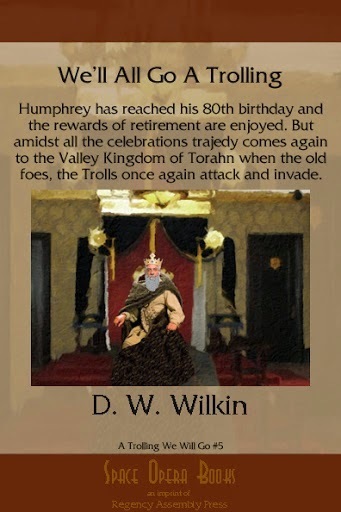
Barnes and Noble for your Nook
King Humphrey, retired, has his 80th birthday approaching. An event that he is not looking forward to.
A milestone, of course, but he has found traveling to Torc, the capital of the Valley Kingdom of Torahn, a trial. He enjoys his life in the country, far enough from the center of power where his son Daniel now is King and rules.
Peaceful days sitting on the porch. Reading, writing, passing the time with his guardsmen, his wife, and the visits of his grandson who has moved into a manor very near.
Why go to Torc where he was to be honored, but would certainly have a fight with his son, the current king. The two were just never going to see eye to eye, and Humphrey, at the age of 80, was no longer so concerned with all that happened to others.
He was waiting for his audience with the Gods where all his friends had preceded him. It would be his time soon enough.
Yet, the kingdom wanted him to attend the celebrations, and there were to be many. So many feasts and fireworks he could not keep track, but the most important came at the end, when word was brought that the Trolls were attacking once more.
Now Humphrey would sit as regent for his son, who went off to fight the ancient enemy. Humphrey had ruled the kingdom before, so it should not have been overwhelming, but at eighty, even the little things could prove troublesome.
Feedback
If you have any commentary, thoughts, ideas about the book (especially if you buy it, read it and like it ;-) then we would love to hear from you.


October 21, 2014
Regency Personalities Series-William Taylor of Norwich
Regency Personalities Series
In my attempts to provide us with the details of the Regency, today I continue with one of the many period notables.
William Taylor of Norwich
7 November 1765 – 5 March 1836
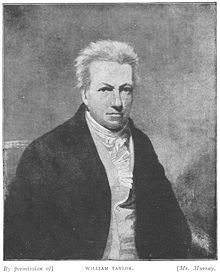
William Taylor
William Taylor of Norwich was the only child of William Taylor, a wealthy Norwich merchant with European trade connections, by his wife Sarah , second daughter of John Wright of Diss, Norfolk. William Taylor was taught Latin, French and Dutch by John Bruckner, pastor of the French and Dutch Protestant churches in Norwich, in preparation for continuing his father’s continental trading in textiles. In 1774 he was transferred to Palgrave Academy, Suffolk, by Rochemont Barbauld, whose wife Anna Letitia Barbauld Taylor regarded as a strong influence. For three years his school companion was Frank Sayers, who was to be a lifelong friend.
In August 1779 his father took him from school. During the next three years he spent much of his time abroad. Firstly he visited the Netherlands, France, and Italy, learning languages and business methods. In 1781, he left home again, and spent a year in Detmold, staying with an Alsatian Protestant pastor called Roederer, and absorbing German literature under the influence of Lorenz Benzler. Roederer gave him introductions to August Ludwig von Schlözer the historian at Göttingen, and to Goethe at Weimar. After further German travels he returned to Norwich on 17 November 1782.
Taylor was a Unitarian who attended the Octagon Chapel, Norwich. He became the central of Norwich’s literary circles, and a political radical who applauded the French Revolution. He argued for universal suffrage and the end of all governmental intervention in the affairs of religion. He wrote the 18th century tradition of liberal and latitudinarian criticism of the Bible (which Sayers thought heretical, at least in part). In the period 1793 to 1799 he wrote over 200 reviews in periodicals, following his concept of “philosophical criticism”.
From 1783 Taylor was engaged in his father’s business. In May and June 1784 he was in Scotland with Sayers, who had begun medical studies at Edinburgh; there he met James Mackintosh. A second journey to Edinburgh in 1788 followed a breakdown in Sayers’ health.
In November 1789 Taylor’s father was made secretary of a Revolution Society in Norwich, formed to commemorate the Glorious Revolution of 1688. In May 1790 Taylor made a visit to France, and spent time at the National Assembly. He returned somewhat sceptical whether its members’ rhetoric matched their intentions, but translated a number of its decrees for the Revolution Society. Before the end of 1790 two new clubs were formed in Norwich, of which Taylor became a member, the “Tusculan School” for political discussion, and the Speculative Society, founded by William Enfield for philosophical debate. Taylor became a leader of the Speculative Club. It lasted to 1797, dissolving after Enfield died.
Around this point in time, Taylor persuaded his father to retire on his fortune. The firm was dissolved in 1791; his father employed part of his capital in underwriting, not very successfully. Taylor resisted his father’s wish to put him into a London bank. William Taylor senior gave up his position as secretary to the Revolution Society by early 1792. In May 1794 government repression of radicals meant the Norwich Revolution Society closed down officially; and Taylor added “junior” to its written records, wherever his father’s name appeared.
In late 1794 a Norwich periodical, The Cabinet, was set up, publishing articles taking an anti-government view. It was supposed to be the work of a “Society of Gentlemen”, the group behind it being closely related to the Tusculan School, which dissolved or went underground in mid-1794: it was edited by Charles Marsh, and Taylor contributed, along with other like-minded young radicals, such as Thomas Starling Norgate and Amelia Alderson. They had tacit support from older citizens, including Enfield and Edward Rigby. It appeared for a year from September 1794, proposing in fact a tame and moderate intellectual line.
Taylor was nicknamed godless Billy for his radical views. He was a heavy drinker, of whom his contemporary Harriet Martineau said:
his habits of intemperance kept him out of the sight of ladies, and he got round him a set of ignorant and conceited young men, who thought they could set the whole world right by their destructive propensities.
Taylor’s friendship with Robert Southey began early in 1798, when Southey, having placed his brother Henry Herbert Southey with George Burnett at Great Yarmouth, visited Norwich as Taylor’s guest; Southey revisited him at Norwich in February 1802. Much of their correspondence to 1821 is given by John Warden Robberds in his Memoir of Taylor; it is frank on both sides.
In 1802, during the Peace of Amiens, Taylor embarked on another tour of Europe, visiting France, Italy and German, partly on business; Henry Southey joined him at Paris. He stayed with Lafayette at Lagrange, where he met Frances d’Arblay. In Paris he met Thomas Holcroft, Thomas Paine, and Thomas Manning.
From 1811 American and other business losses made money tight. Taylor applied in 1812, at Southey’s suggestion, for the post of keeper of manuscripts in the British Museum, on the resignation of Francis Douce; but the vacancy was already filled.
Unmarried, Taylor lived with his parents. He had a daily routine of studying in the morning, walking in the afternoon followed by bathing in the River Wensum, from a bath house upstream from the city and its pollution. In the evening he liked to socialise, drink (heavily) and discuss linguistics, literature and philosophy in society.


RAP has The End of the World
The End of the World This is the first of the Regency Romances I published. It is available for sale and I hope that you will take the opportunity to order your copy.
For yourself or as a gift. It is now available in a variety of formats. For $5.99 you can get this Regency Romance for your eReader. A little more as an actual physical book.
Barnes and Noble for your Nook
Amazon for your Kindle and as a Trade Paperback
Hermione Merwyn leads a pleasant, quiet life with her father, in the farthest corner of England. All is as it should be, though change is sure to come. For she and her sister have reached the age of marriage, but that can be no great adventure when life at home has already been so bountiful.
When Samuel Lynchhammer arrives in Cornwall, having journeyed the width of the country, he is down to his last few quid and needs to find work for his keep. Spurned by the most successful mine owner in the county, Gavin Tadcaster, Samuel finds work for Gavin’s adversary, Sir Lawrence Merwyn.
Can working for Sir Lawrence, the father of two young women on the cusp of their first season to far away London, be what Samuel needs to help him resolve the reasons for his running away from his obligations in the east of the country?
Will the daughters be able to find happiness in the desolate landscapes and deadly mines of their home? When a stranger arrives in Cornwall while the war rages on the Peninsula, is he the answer to one’s prayers, or a nightmare wearing the disguise of a gentleman?
Feedback
If you have any commentary, thoughts, ideas about the book (especially if you buy it, read it and like it ;-) then we would love to hear from you.


October 20, 2014
Regency Personalities Series-Vice-Admiral Sir Charles Paget
Regency Personalities Series
In my attempts to provide us with the details of the Regency, today I continue with one of the many period notables.
Vice-Admiral Sir Charles Paget
7 October 1778 – 27 January 1839
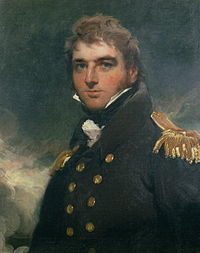
Charles Paget
Vice-Admiral Sir Charles Paget was the son of Henry Bayly Paget, 1st Earl of Uxbridge, and Jane Champagné, and was brother to the second earl who became the first Marquess of Anglesey, famous for losing his leg at the Battle of Waterloo while commanding the cavalry.
Charles joined the Royal Navy in 1790, and by 1797 he was captain of HMS Martin, a sloop of war serving at the Battle of Camperdown.
In 1798 he became post-captain of HMS Brilliant, a small frigate in which he captured le Dragon of 11 guns, and the St Jago, a Spanish privateer of 10 guns.
Captain Paget’s next appointment was to HMS Hydra, a frigate of 38 guns, in which he proceeded to the Mediterranean where he remained about twelve months. On 6 April 1803 he commissioned HMS Endymion, a frigate of the largest class, and in the course of the ensuing summer he captured Bacchante, a French corvette of 18 guns, Adour, a store ship pierced for 20 guns, and General, a Morcau schooner privateer of 16 guns. He subsequently intercepted several richly laden Spanish merchantmen coming from South America, and he also captured Colombe, a French corvette of 10 guns off Ushant. In 1800 he removed into HMS Egyptienne.
Towards the close of the long French war, Paget, while cruising in the Endymion on the coast of Spain, descried a French ship of the line in imminent danger, embayed among rocks upon a lee shore, bowsprit and foremast gone, and riding by a stream cable, her only remaining one. Though it was blowing a gale, Paget bore down to the assistance of his enemy, dropped his sheet anchor on the Frenchman’s bow, buoyed the cable, and veered it athwart his hawse. This the disabled ship succeeded in getting in, and thus seven hundred lives were rescued from destruction. After performing this chivalrous action, the Endymion, being herself in great peril, hauled to the wind, let go her bower anchor, club-hauled and stood off shore on the other tack.
He was appointed to HMS Superb, another third rate belonging to the Channel Fleet, and during a cruise in the bay of Biscay he took several prizes. In 1814 he was employed on the coast of North America under the orders of Sir Alexander Cochrane by whom he was entrusted with the command of a squadron stationed off New London and took part in an attack upon Wareham, Massachusetts during the War of 1812.
Captain Paget was appointed to the command of HMY Prince Regent on 1 January 1819 and afterwards to the Royal George. He attended King George IV, and before his accession he nominated Charles as a Knight Grand Cross of the Hanoverian Guelphic Order and a Knight Bachelor at Brighton on 19 October 1819. In January 1822, Sir Charles succeeded his brother Lieut Gen Sir Edward Paget as a Groom of the Bedchamber, and he continued to hold that appointment during the whole reign of King William IV.
He was made a commodore on board the Royal George on 26 July 1822 and was advanced to the rank of Rear Admiral on 9 April 1823.
In March 1828 he was appointed Commander in chief on the coast of Ireland. He attained the rank of Vice Admiral on 10 January 1837 and succeeded Vice Admiral Sir Peter Halkett in the command of the North America and West Indies Squadron using HMS Cornwallis as his flagship.
Sir Charles Paget died onboard HMS Tartarus, whilst she was on her way from Port Royal to Bermuda. His death ensued after a violent attack of yellow fever during which for three days his death was hourly expected. Of his staff of twenty, six had died including Dr Scott the surgeon. Feeling better, but weak, and strangely free from rheumatic pain on 19 January he embarked on board the Tartarus, for the purpose of going to the Bermudas. He was off those islands for three days, but being unable to reach them was obliged to go back to St Thomas’s.
He was Member of Parliament for the rotten borough of Milborne Port from 1804 to 1806, then succeeded his elder brother Edward Paget as MP for Caernarvon Boroughs from 1806 to 1826, and was its MP again from 1831 to 1835. According to Hansard’s records, Paget made no contributions to debates in parliament.
He was buried in St Bartholomew’s Church in Rogate in West Sussex. In the same place is buried his daughter Fredericka Georgina Augusta.
His widow died at Fair Oak on 17 August 1843, aged 56 years.


Space Opera Books Presents Trolling, Trolling, Trolling Fly Hides
Trolling, Trolling, Trolling Fly Hides!
Not only do I write Regency and Romance, but I also have delved into Fantasy.
The Trolling series, (the first three are in print) is the story of a man, Humphrey. We meet him as he has left youth and become a man with a man’s responsibilities.
We follow him in a series of stories that encompass the stages of life. We see him when he starts his family, when he has older sons and the father son dynamic is tested.
We see him when his children begin to marry and have children, and at the end of his life when those he has loved, and those who were his friends proceed him over the threshold into death. All this while he serves a kingdom troubled by monsters.
Troubles that he and his friends will learn to deal with and rectify.
It is now available in a variety of formats. For $2.99 you can get this fantasy adventure.
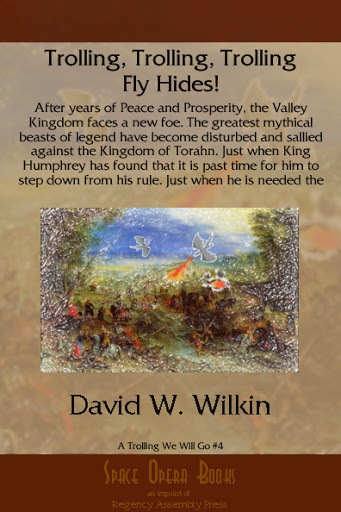
Barnes and Noble for your Nook
Old age is catching up to Humphrey and his friends. He feels it in his bones and with his son and heir having reached the prime of his life, it could very well be time to pass the baton of rule to Daniel.With the Valley Kingdom of Torahn at Peace, that would not be a terrible thing to do. Though breaking his decision to his wife Gwendolyn, the Queen, might be the hardest battle that he ever would fight.
Even as the life of retirement looks to be attractive and possible, however, the Valley Kingdom is beset again. Not Goblins, Trolls, Giants or Men, this time. No. That Humphrey knew would be far too easy.
Those obstacles had been overcome before and the problems they presented had solutions that the army of Torahn was trained to deal with. No, of all the creatures that came forth from Teantellen that they had beaten, the one they had never faced now came forth. Dragons!
Who in the realm knew how to fight these mythical beasts? Was there even away to do so?
Now Humphrey who had thought to spend the remainder of his days quietly writing his memoirs and drinking, was faced with the greatest challenge he had ever known.
Feedback
If you have any commentary, thoughts, ideas about the book (especially if you buy it, read it and like it ;-) then we would love to hear from you.



